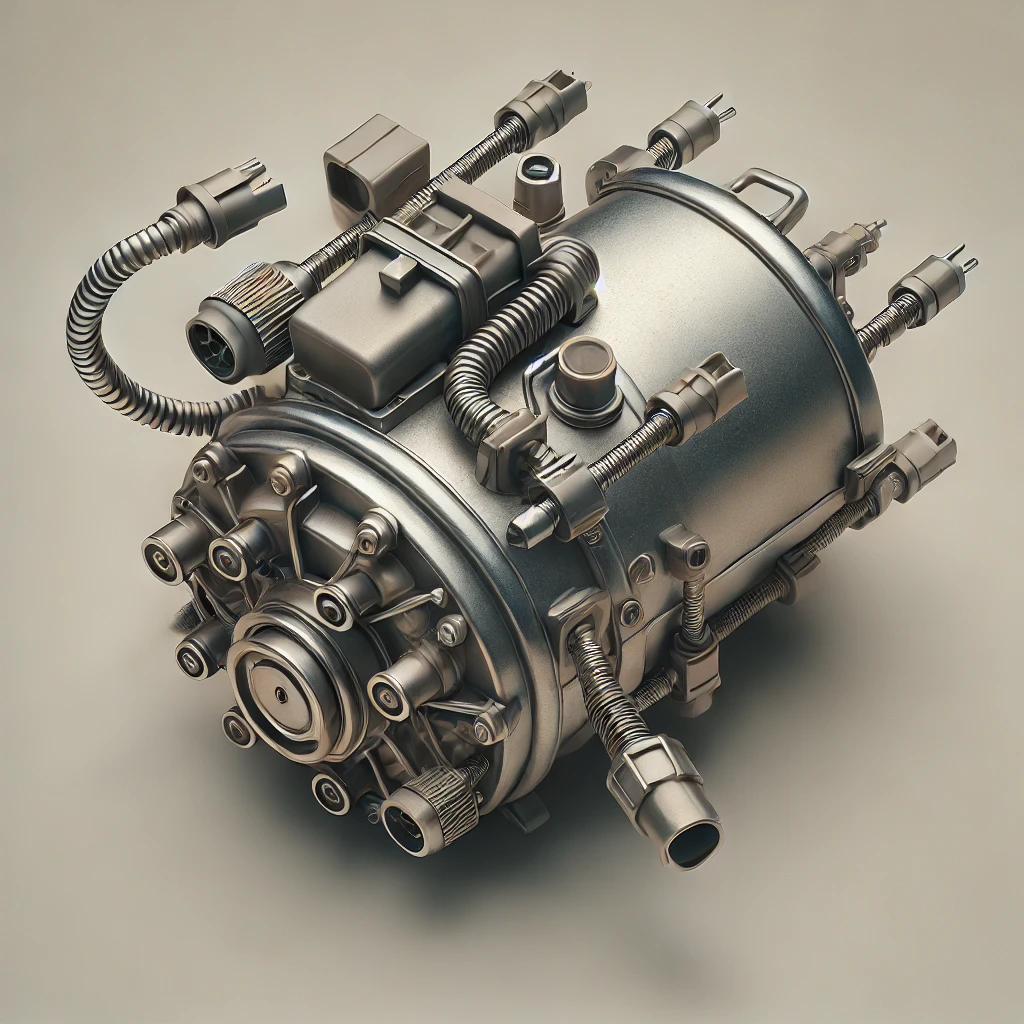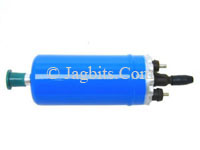By Gary Ilcyn, CEO and Jaguar Enthusiast at Jagbits Inc.
Dive into our ultimate guide on fuel pump parts for your Jaguar XJ40. Whether you’re a die-hard Jaguar fan or a new owner, mastering your vehicle’s fuel pump system is key to peak performance.
This guide unpacks the vital components and their roles while offering troubleshooting tips. Arm yourself with the know-how to keep your Jaguar XJ40 purring like new. Jump in to master maintaining this classic luxury sedan for a smooth, reliable ride.
Performance and Efficiency
The fuel pump for the XJ40 is known for its reliable performance, ensuring consistent fuel delivery to the engine. It operates efficiently under various driving conditions, maintaining optimal pressure levels.
Durability and Build Quality
Constructed with high-quality materials, this fuel pump offers excellent durability and longevity. Its robust design minimizes wear and tear, reducing the need for frequent replacements.
Installation Process
The installation process for this fuel pump is straightforward, making it accessible even for those with moderate mechanical skills. Clear instructions are typically provided, aiding in a hassle-free setup.
Compatibility
This model is specifically designed to fit Jaguar XJ40 vehicles seamlessly. Ensuring compatibility before purchase can prevent potential issues during installation.
Noise Levels
One notable feature of this fuel pump is its quiet operation; it produces minimal noise compared to other models in its category.
Maintenance Requirements
Regular maintenance checks are recommended to ensure optimal performance over time. Keeping an eye on filters and connections can help prolong the life of the pump.
Cost-Effectiveness
While not necessarily budget-friendly upfront, its long-term reliability makes it a cost-effective choice over time due to fewer replacements or repairs needed.

Available Fuel Pump Options
The Jaguar XJ40, known for its luxury and performance, requires a dependable fuel pump to maintain its smooth operation. Here are the primary options available:
- OEM Fuel Pumps: Original Equipment Manufacturer pumps are designed specifically for the XJ40, ensuring a perfect fit and reliable performance.
- Aftermarket Fuel Pumps: These are produced by third-party manufacturers and can offer enhanced performance or cost savings. However, compatibility and quality can vary.
Top Recommended Fuel Pumps
| Brand | Model | Type | Price Range | Notes |
|---|---|---|---|---|
| Bosch | 69136 | OEM | $150 – $200 | Highly reliable, direct fit for XJ40 |
| Walbro | GSS342 | Aftermarket | $100 – $150 | High-performance, may require modifications |
| Delphi | FE0114 | OEM | $120 – $170 | Good balance of cost and reliability |
Comparing OEM and Aftermarket Fuel Pumps
Choosing between OEM and aftermarket fuel pumps can be challenging. Here are some key considerations:
OEM Fuel Pumps
- Pros: Guaranteed fit, reliable performance, warranty support.
- Cons: Higher cost, limited availability.
Aftermarket Fuel Pumps
- Pros: Cost-effective, potential for enhanced performance, wider availability.
- Cons: Variable quality, may require modifications, potential compatibility issues.
Note:
* This article has been peer-reviewed and held to the highest editorial standards.
** Image may not represent actual part.
Maintenance Tips for Long Fuel Pump Life
Ensuring the longevity of your fuel pump involves regular maintenance and mindful driving habits. Here are some tips:
Listen for Unusual Noises: A whining noise from your fuel tank could signal a failing pump. Act quickly to avoid potential breakdowns and keep your vehicle running smoothly.
Avoid Running Low on Fuel: Fuel is essential for the proper functioning of the pump, as it helps to cool it down while in operation. Insufficient levels of fuel can result in overheating and premature failure of the pump. This highlights the critical role that fuel plays in maintaining the efficiency and longevity of your car’s components.
Regularly Check Fuel Lines and Connections: Inspect for leaks or damage, especially around the fuel pump area.
Replace Fuel Filters: Clogged filters strain your fuel pump, risking future problems. Regularly replacing them, as the manufacturer recommends, ensures peak performance and extends your car’s fuel system life. This easy maintenance step prevents expensive repairs and keeps your vehicle running smoothly.
Listen for Unusual Noises: A whining noise from your fuel tank could signal a failing pump. Act quickly to avoid potential breakdowns and keep your vehicle running smoothly.







